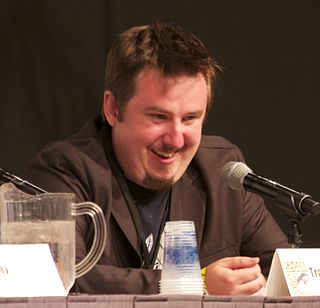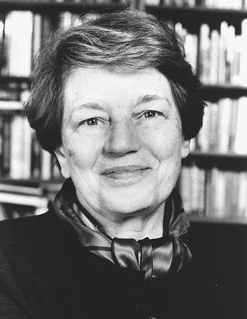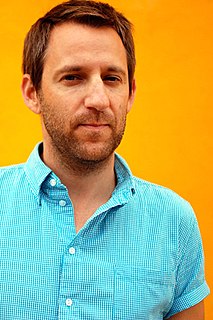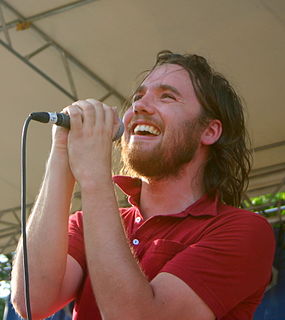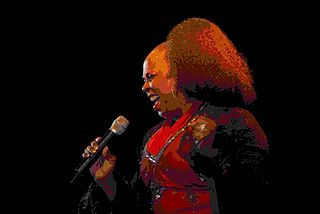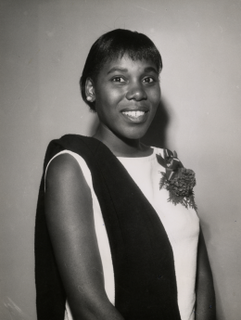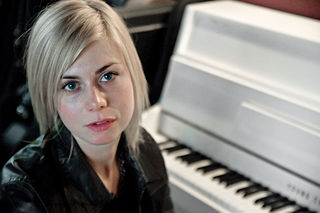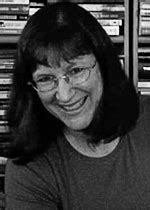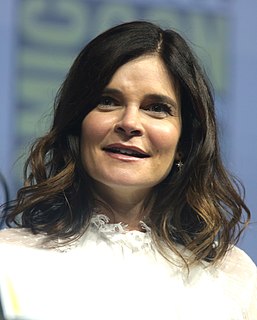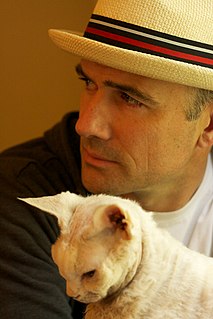A Quote by Travis Beacham
The old storytellers took the stories that meant something to them and rearranged the pieces to say something.
Related Quotes
There is something I keep wanting to say about reading short stories. I am doing it now, because I many never have another occasion. Stories are not chapters of novels. They should not be read one after another, as if they were meant to follow along. Read one. Shut the book. Read something else. Come back later. Stories can wait.
Sometimes people will request a song I haven't played in a while and I'll play it and singing the lyrics will mean something different to me as a 35 year-old person than they did when I was 25. I know I'm still that person who wrote it and thought I knew what I meant when I was writing them. They meant something very exact to me in that time of my life. But it's really cool when those same lyrics can transform into something else and mean something entirely different to me.
There's an interesting story around that ["Heaven Without a Gun"], because the girl I was dating at the time got into a bike accident and couldn't make it into the studio, and the gentleman Dave Hamlin who worked on this record along with Ohad sort of took it, rearranged it. Dave went and sonically changed it and changed the keys so that Andy could sing it better. All these pieces came together that suddenly displayed that the song was meant for Andy [Kim] to sing. And he always said, "I'll never understand it, but I'll sing it with all my heart."
I'm always intrigued by authors who say, 'This book took 17 drafts.' They're very clear about it. I couldn't possibly count the number of times... So many of these stories I worked on for a very long time and wrote them, set them aside, rewrote them, worked on something else - they were never far from reach; they informed each other.
Imagination can't create anything new, can it? It only recycles bits and pieces from the world and reassembles them into visions... So when we thing we've escaped the unbearable ordinariness and, well, untruthfulness of our lives, it's really only the same old ordinariness and falseness rearranged into the appearance of novelty and truth. Nothing unknown is knowable.
Marla tells me how in the wild you don't see old animals because as soon as they age, animals die. If they get sick or slow down, something stronger kills them. Animals aren't meant to get old. Marla lies down on her bed and undoes the tie on her bathrobe, and says our culture has made death something wrong. Old animals should be an unnatural exception. Freaks.
I work in bits and pieces. When I'm touring it's difficult. After touring, when I have space and time, it's a process, something I've been doing since I was 10 or 11 years old. I collect lyrics, melodies, bits and pieces, and finally it all comes together. It's hard to say - I've been trying to figure out how the process works.
I started acting when I was five years old. I found it randomly, through listening to my brother study monologues. I auditorally started memorizing them for no reason, and started repeating them to anyone who would listen to me. And then, I begged my mom to let me do whatever that meant because I couldn't put into words exactly what that meant. It just meant me happy. And then, when I was 11 years old, I realized what I was doing and I looked to my mom and said, "Can I make this something I can do for the rest of my life?" She was like, "Yeah, sure, if you want to." And I was like, "Okay, great! I think I might want to do this forever."
You look at anything, and you're like, 'Is this as good as 'Breaking Bad?'' It took a while for me to stop comparing every project that comes my way to that. That's one of the reasons I wanted to do 'Life in Pieces.' I just want something that's a 180. I just wanna do something completely different.
Somewhere in our search for reality we have passed something by, something important that we no longer find amid the bits and pieces of disassembled matter-something vital that we cannot build out of these parts. There is surely something else, some piece of divinity in us, something that was before the elements, and that owes no homage to the sun.
